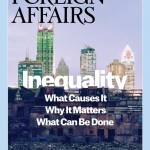At a time when Russian relations with the United States and western European countries are growing cold, the relatively warm ties between China and Russia have attracted renewed interest. Scholars and journalists in the West find themselves debating the nature of the Chinese-Russian partnership and wondering whether it will evolve into an alliance.
Since the end of the Cold War, two main views have tended to define Western assessments of the Chinese-Russian relationship and predictions of its future. The first view holds that the link between Beijing and Moscow is vulnerable, contingent, and marked by uncertainties—a “marriage of convenience,” to use the phrase favored by many advocates of this argument, who see it as unlikely that the two countries will grow much closer and quite possible that they will begin to drift apart. The other view posits that strategic and even ideological factors form the basis of Chinese-Russian ties and predicts that the two countries—both of which see the United States as a possible obstacle to their objectives—will eventually form an anti-U.S., anti-Western alliance.
Fu Ying is Chair of the Foreign Affairs Committee of the National People’s Congress of the People’s Republic of China and a Specially Invited Vice Chair of the China Center for International Economic Exchanges.
This article appeared in the Foreign Affairs 2016 January/February edition. It is republished here with permission
This article was originally published by Foreign Affairs. You can read the rest of the article here.
You can read exclusive content from Gateway House: Indian Council on Global Relations, here.
Copyright © 2016 by the Council on Foreign Relations, Inc


